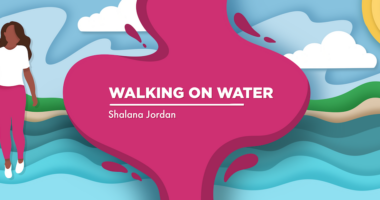Shoshin for aHUS Patients

If you are living with a chronic disease such as atypical hemolytic uremic syndrome (aHUS), a concept called shoshin may help to change your perspective, allowing you see the world, and your disorder, in a different light.
What is shoshin?
The word shoshin comes from Zen Buddhism, and means “beginner’s mind.” It refers to keeping an attitude of openness and eagerness that is free of misperceptions, just as a beginner would in tackling a new task.
When you are a beginner, your mind is empty and open. You are willing to learn and to consider a variety of information. As you develop expertise and knowledge, however, your mind naturally becomes more focused and, often, more closed.
Applying shoshin to your daily life can help bring back the childlike, curious nature that many of us tend to lose as we age. Ultimately, shoshin can give more meaning to life.
How can shoshin help me?
There are no studies specifically about shoshin and aHUS. However, according to a University of Zurich study of holistic approaches in treating chronic illness, the openness of a beginner’s mind — when combined with conventional medicine — can help in handling the pain common to diseases like aHUS. The beginner’s mind approach may also help with other symptoms, such as the headaches and cardiovascular complications associated with aHUS.
Shoshin might also ease stress, and help to the lower anxiety and depression that can accompany aHUS. If you feel anxious about an upcoming appointment, for instance, instead of worrying about the outcome let yourself be curious about what will take place. Release preconceived notions and embrace the present.
Physicians can also practice shoshin. This can help them be more “present,” and responsive to their patients and their particular needs.
How to rediscover your beginner’s mind
You can train your mind to employ shoshin during simple everyday activities, like having breakfast. Start by viewing what you’re doing (eating) with fresh eyes, as if you don’t know what to expect even though you’ve already done it countless times.
With the breakfast example, really examine the food, plate, and fork, and try to see details you wouldn’t ordinarily notice. Pay attention to the food’s tastes, textures, smells, and sights, as if you aren’t already familiar with them. Everything may start to seem new, maybe even full of wonder. You take nothing for granted and appreciate every bite as a gift that is transient and precious.
Whether you employ it at breakfast, while brushing your teeth, or doing the dishes, the practice works to root you in the present. This way, you can optimize your capacity to stop living on auto-pilot, to see more clearly, and to make conscious life choices.
Start by listening more closely while talking with others. Instead of sharing your own experiences, listen to other people’s ideas and achievements. See what you can take away from them.
Why shoshin matters
When you are living with limitations, it can at times feel as though you aren’t advancing in life. Practicing shoshin can help by making each day’s experiences more real and worthwhile. You may be more open if you aren’t hampered by preferences or prejudgments about how things should be. Such an outlook also can help with feelings of disappointment and frustration.
If you’re procrastinating about a big task, instead of fretting about how hard it will be or how you might fail, be curious about what the task will be like. Pay attention to the details of performing the task, rather than trying to avoid them.
Learning to become more aware of yourself and your mind can help in keeping you open to new ideas, and to more positive and effective ways of thinking.
Last updated: March 1, 2021
***
aHUS News is strictly a news and information website about the disease. It does not provide medical advice, diagnosis, or treatment. This content is not intended to be a substitute for professional medical advice, diagnosis, or treatment. Always seek the advice of your physician or other qualified health provider with any questions you may have regarding a medical condition. Never disregard professional medical advice or delay in seeking it because of something you have read on this website.






